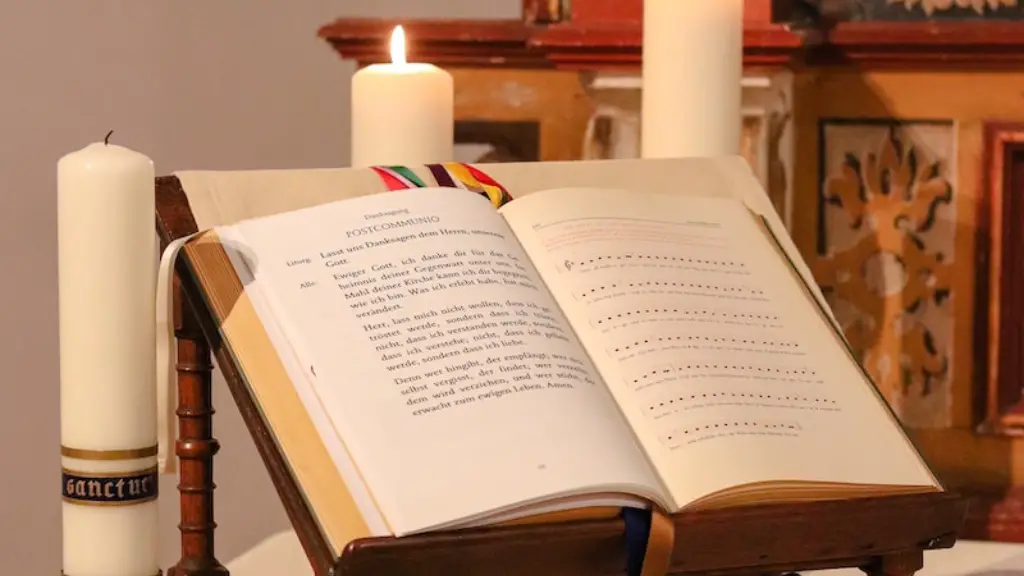The Book of Jeremiah is one of the major prophetic books of the Hebrew Bible. Jeremiah’s calling as a prophet began in the thirteenth year of the reign of Josiah son of Amon, when Josiah was still a child. It is generally accepted that his prophecies ended around 587 BCE, following the destruction of Jerusalem by the Babylonians. The Book of Jeremiah is quoted in the New Testament, and is listed as a book of the Nevi’im in traditional Jewish canons.
The Book of Jeremiah is one of the major prophetic books of the Bible. Its theme is the call of the prophet to be a watchman over the people of Judah, and its purpose is to warn them of the approaching destruction of Jerusalem and the nation. The book contains a collection of the prophet’s sermons, messages, and warnings, as well as a number of songs and poems.
What is special about the book of Jeremiah?
The book of Jeremiah is unique among the prophetic books in that it contains a considerable amount of biographical and historical material in addition to the prophet’s own words. This material is especially valuable because it reveals the personality of the prophet more clearly than any of the other prophetic books reveal their writers’ personalities. Jeremiah was a passionate and deeply committed prophet who had a strong sense of justice and a deep love for his people. He was also a man of great courage and integrity who was willing to stand up for what he believed in, even in the face of opposition.
The author of this text is clearly concerned about the threat that idolatry poses to the faithfulness of the people of Israel. It is likely that the author was living in Babylonia at the time and that the primary target of their criticism was the Babylonian deity Tammuz. This god was associated with fertility and orgiastic rites, which the author clearly disapproved of.
What is Jeremiah talking about in the Bible
As a prophet, Jeremiah was concerned with false and insincere worship, and failure to trust Yahweh in national affairs. He denounced social injustices, but not as much as some previous prophets, such as Amos and Micah.
Jeremiah was a prophet who lived during the time of the Babylonian captivity of the Jews. He was eventually imprisoned in Jerusalem, and after the city fell to the Babylonians, he was taken to Egypt by the Jews who escaped. There, he was reportedly stoned to death.
What is the main message of Jeremiah?
Jeremiah was a prophet who was concerned with false and insincere worship, and he denounced social injustices. However, he did not focus as much on social injustices as some previous prophets, such as Amos and Micah.
The book of Jeremiah is unique in the Hebrew Bible in that it emphasizes the importance of responsibility and freedom. This is seen in the way that Jeremiah shares with the rest of the Hebrew Bible the essential position that such a responsibility does not lead to forfeiture of being but rather to fulfillment of life. Freedom and promise become juxtaposed, just as are value and obligation. These conditions combine to constitute the moral agent.
What was Jeremiah accused of in the Bible?
I am defecting to the Chaldeans because I believe that it is futile for the people of Judah to resist the Babylonians. I have been accused of being a sympathizer with the Babylonians and maybe even their spy, but I believe that this is the best course of action for the people of Judah.
It is certainly not easy to be a prophet, and Jeremiah’s task was especially difficult. He had to preach to a people who were rebellious and unwilling to listen to God’s message of repentance. Jeremiah was ridiculed and mocked by everyone, but he continued to faithfully deliver God’s message. This took great courage and strength of character. We can learn from Jeremiah’s example to persevere in our own faith journey, even when it is difficult.
What were three major subjects Jeremiah wrote
The book of Jeremiah is generally divided into four main sections: prophecies against Judah and Jerusalem (chapters 1-25), narratives about Jeremiah (chapters 26-45), prophecies against foreign nations (chapters 46-51), and a historical appendix (chapter 52). Each section contains important information about Jeremiah’s ministry and the events surrounding his life.
The name Jeremiah is derived from a Hebrew word meaning “God is high”. The name is often shortened to Jere or Jerry. There are many different ways to spell the name, including Jeremy, Jermiah, and Jerrod.
Why did God send Jeremiah?
Jeremiah’s call to prophecy came in 626 BC, when God told him to proclaim Jerusalem’s destruction by invaders from the north. This was because the Israelites had forsaken God by worshiping the idols of Baal and burning their children as offerings to Baal. Jeremiah warned the people of the impending destruction, but they would not listen. As a result, Jerusalem was destroyed and the people were exiled to Babylon.
Jeremiah’s main complaint is that in the sanctification vision, he accepted being appointed willingly, if not gladly: Jeremiah’s name was supposed to elevate God’s name, and even to rise by itself. But instead, his name has become a byword and a laughingstock. The irony is that the meaning of his name in Hebrew is “He shall be exalted.”
Who saved Jeremiah from death
Ebed-Melech is a hero because he saved Jeremiah from a horrible death. Jeremiah was able to tell Ebed-Melech that he would be safe during the Fall of Jerusalem because he had put his trust in God. This shows that even in the midst of chaos and destruction, there is still Hope.
As you study the book of Jeremiah, you will deepen your understanding of the covenant between the Lord and His people. By studying the Lord’s work to restore His people and help them overcome the effects of their sins, you can learn of the Lord’s power to save and bless us. As you read about how the Lord blessed His people when they followed His covenant and how He brought them back from punishment when they broke it, you will be better able to understand the Lord’s love for His people and His desire to save and bless us.
What was Jeremiah’s punishment?
The king of Judah, Zedekiah, was pressured by his advisors to have the prophet Jeremiah imprisoned. Jeremiah was put into a dungeon, where he sank into the mire. He had no water. Someone interceded for Jeremiah, and the king allowed him to be confined to the court of the prison until Jerusalem was taken.
It can be difficult to hear unpleasant messages, especially when they come from people we respect. However, it is important to remember that these messages are often given with the best intentions. In the case of Jeremiah, his endurance in the face of suffering is a testament to his commitment to God.
Who pulled Jeremiah out of the pit
Ebed-Melech was a man who helped the Prophet Jeremiah when he was imprisoned in a cistern. He took some old rags and worn-out clothes from a room in the palace and let them down to Jeremiah with ropes. With the help of the ropes, they pulled Jeremiah up from the cistern and saved his life.
We are a remnant of the people of Israel, and we pray that the LORD our God will tell us where to go and what to do. Jeremiah was a great prophet, and we hope that he will intercede on our behalf with the LORD our God.
Conclusion
The book of Jeremiah is a book of the Hebrew Bible. Its title prophetically identifies Jeremiah as the “Seer” or “Prophet”. Jeremiah is traditionally credited with authoring the book bearing his name, and is also said to be the recipient of the other books in the “Major Prophets” collection which comprise the Nevi’im.
The book of Jeremiah is about the prophet who was tasked with the difficult job of warning the people of Judah of the impending destruction of their city and nation. Despite his warnings, they refused to listen and were eventually conquered by the Babylonians. The book is a powerful reminder of the importance of obeying God’s commands.





